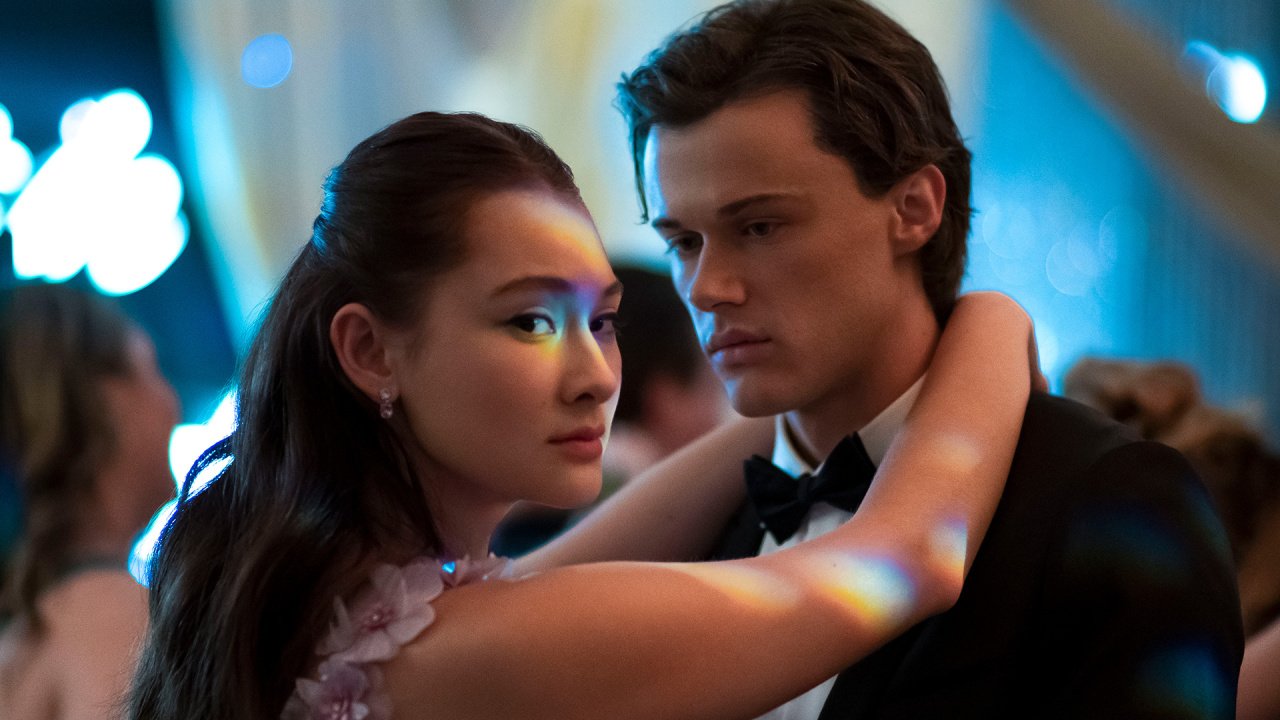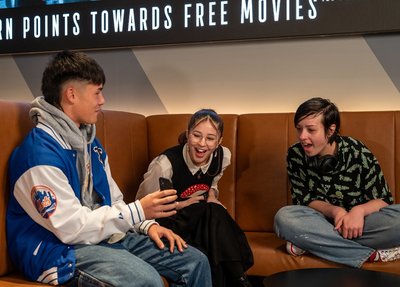
All the red flags in The Summer I Turned Pretty
Caitlin on Sept. 26, 2025
The series may have wrapped up after three seasons, but the excitement for The Summer I Turned Pretty is far from over – a movie has just been announced, and fans are buzzing. Social media is still flooded with clips from past seasons, cast interviews, and now speculation about what the movie could bring. The burning question during the series run was always: Who will Belly pick? But for parents, the more important question remains: is this the right pick for a whānau watch?
Having only recently dived into the series myself (I had to see what all the hype was about), I’ll admit – I’m hooked. Like everyone else, I wanted to know who Belly chose... and now we’re all excited to see what the movie has in store.
The age rating
The series has been self-rated by Prime Video as 16, because of the the strongest episodes in season 3 (5 & 7). However, the majority of the individual episodes are rated M, with warnings for offensive language, sex scenes, and drug use. An M rating means it’s aimed at viewers over 16 years of age. If you’re unsure about what that really looks like – I'm here to break it down for you.
If I had to compare it to other popular series, I’d say it’s a mix of The Vampire Diaries (minus the vampires and darker themes) and Dawsons Creek (but set in this century). You get endless love triangles, teenage make-outs, and plenty of angsty decisions.
As a 30-something-year-old mum, I’ll admit it can feel slightly odd watching teenagers fall dramatically in and out of love. But along with remembering our youth, there’s an opportunity to sit down with your rangatahi and question the characters’ choices. It’s a safe way to talk about how relationships really work, and how they sometimes don’t.
Conversation starters for parents
Here are some prompts you could use while watching (or even just after hearing your teen talk about the show):
“What do you think Belly actually wants in a relationship?” Helps them think critically about how her indecision drives the plot, but isn’t necessarily a model for healthy choices.
“Would you be okay with the way Jeremiah treats Belly when he’s jealous?” Encourages your young person to spot controlling or dismissive behaviour.
“Do you think love triangles like this are real –or just for TV?” Highlights that most real-life relationships don’t play out in such dramatic ways.
“How do you know if someone likes you for who you are versus for how you look?” Grounds the conversation in what matters in healthy relationships.
Poking holes in the plot (and why that’s helpful)
The series thrives on drama, but it’s not always a reflection of real-life relationships. A few examples you could call out while watching:
- Season 1: Belly’s entire summer revolves around whether Conrad notices her “now that she’s pretty.” That’s not real life. People change for all sorts of reasons, and attraction isn’t the only marker of worth.
- Season 2: Jeremiah flips from “I’m not into you” to “I love you” almost overnight. That’s a good chance to ask: how quickly should feelings change?
- Season 3: Belly tries to “fix” Conrad, even though he’s still struggling with grief and mental health. In reality, you can’t save someone by dating them.
Red flags the show surfaces (but doesn’t always name)
Helping your rangatahi spot unhealthy dynamics is key. Here are some red flags you can unpack together:
- Jealousy framed as romance – when Conrad or Jeremiah get possessive, it’s shown as passion. In real life, jealousy can be controlling.
- Hot-and-cold behaviour – one day they’re devoted, the next they’re cold. Healthy relationships should feel steady, not like an emotional rollercoaster.
- Lack of communication – so many issues in the series come from people not being honest with each other. Talking openly is essential in real relationships.
- Pressure to choose – Belly constantly feels like she has to pick someone. In real life, choosing not to be in a relationship is completely valid.
For more information for young people about healthy relationships check out Love Better.
Final thoughts and further reading:
Yes, the series is dramatic and at times unrealistic, but that’s the point. Instead of dismissing it, use the opportunity because it is so much easier to poke holes in something fictional, rather than a real-life relationship. Shows like The Summer I Turned Pretty can be a safe springboard to talk about love, trust, boundaries, and red flags with your rangatahi.
- The Summer I Turned Pretty (content breakdown)
Subscribe to our blog
Stay up to date with the Classification Office blog.


